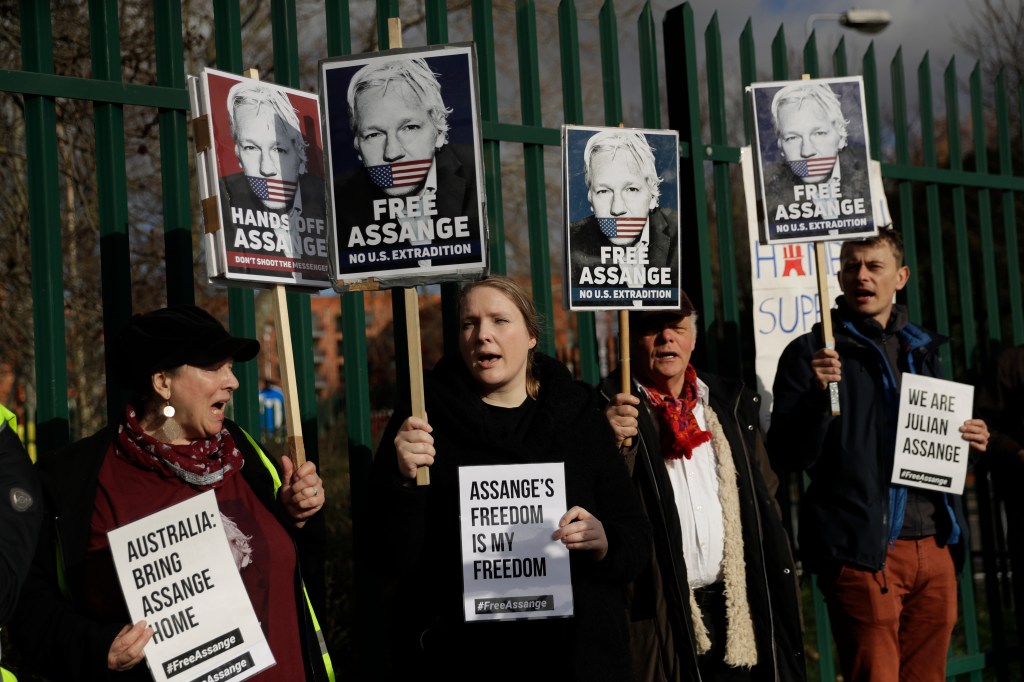Julian Assange was stripped naked, searched, and repeatedly handcuffed once he was returned to prison at the end of the first day of his high-profile extradition trial, according to his legal team.
The allegation was made by Edward Fitzgerald, a lawyer on Assange’s defense team, during the second day of the extradition hearing in London. Fitzgerald pleaded with the judge to intervene as “his treatment will impinge on these proceedings and his preparations to be able to participate.”
Videos by VICE
“Yesterday Mr. Assange was handcuffed 11 times, he was stripped naked two times at Belmarsh, and was put in five separate holding cells,” Fitzgerald said in court this morning, the London Evening Standard reported.
As well as being strip-searched and handcuffed repeatedly after the hearing had adjourned for the day, Fitzgerald said Assange had his case files, which the Wikileaks founder was reading in court on Monday, confiscated by guards when he returned to prison later that night.
Judge Vanessa Baraitser said she did not have the legal power to rule on Assange’s conditions, and she encouraged the defense team to formally raise the matter with the prison authorities.
The hearing, which is set to last for weeks, will decide if the WikiLeaks founder should be extradited to the U.S. to face charges that could result in a prison term of 175 years.
Assange is accused of aiding Chelsea Manning to hack sensitive computer networks and of endangering the lives of military personnel by releasing unredacted documents on the WikiLeaks website in 2010 and 2011.
The hearing is taking place in Woolwich Crown Court, due to its proximity to the high-security Belmarsh prison, where Assange has been housed since his arrest in April last year.
READ: A British family wants to swap Assange for the alleged CIA agent wanted for son’s death
Assange’s legal team has said his mental and physical health have declined significantly since his detention. On Monday Fitzgerald spoke about his client’s “deteriorated mental state,” and his history of clinical depression and risk of suicide. The defense argued that Assange’s fragile health should be taken into account by the court when coming to a decision, given he is likely to be exposed to “inhuman treatment” if sent to a U.S. prison.
Cover: Supporters of Julian Assange hold placards as they protest on the second day of a week of opening arguments for the extradition of Wikileaks founder Julian Assange outside Belmarsh Magistrates’ Court in south east London, Tuesday, Feb. 25, 2020. (AP Photo/Matt Dunham)




